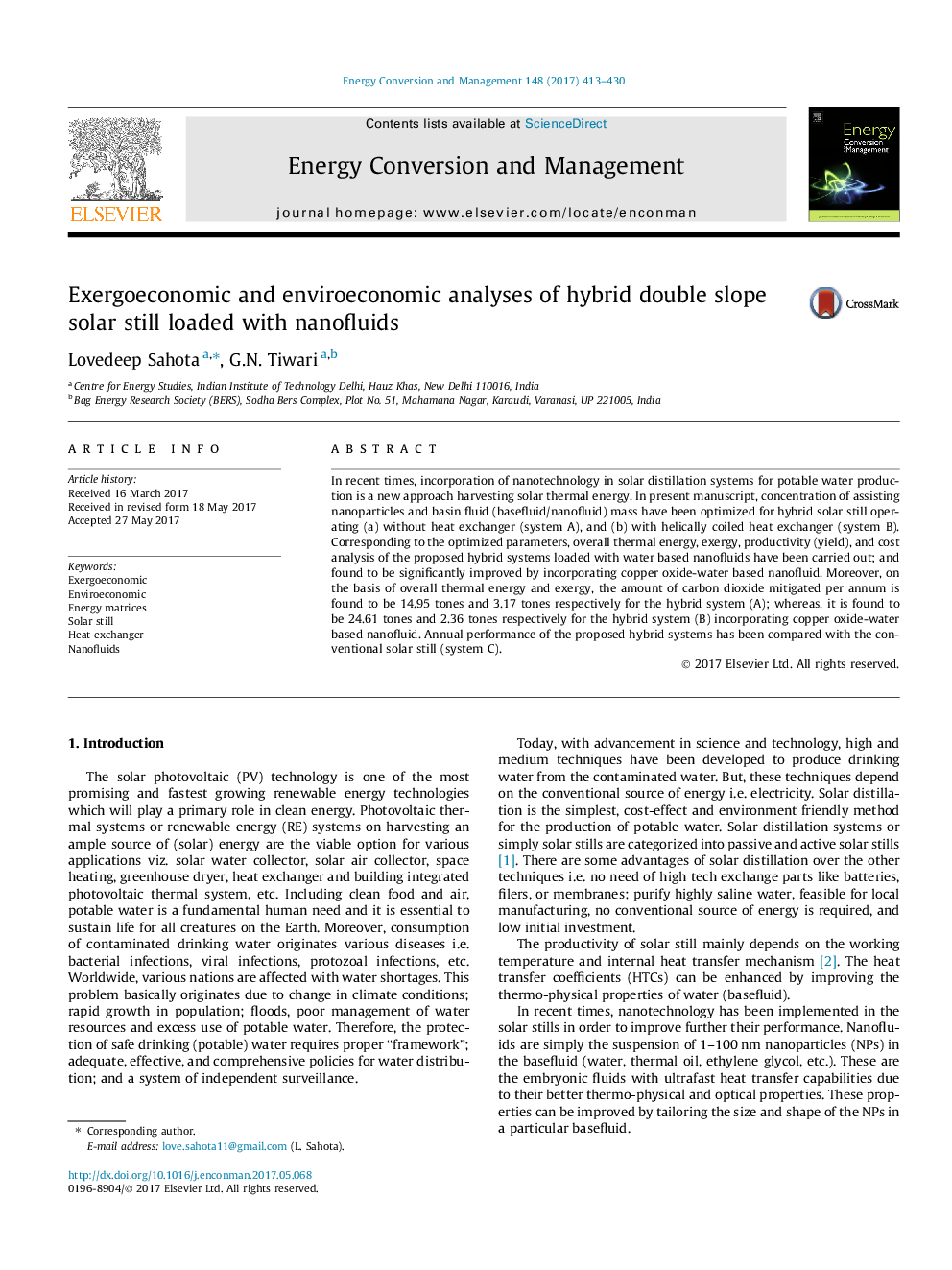| Article ID | Journal | Published Year | Pages | File Type |
|---|---|---|---|---|
| 5012576 | Energy Conversion and Management | 2017 | 18 Pages |
Abstract
In recent times, incorporation of nanotechnology in solar distillation systems for potable water production is a new approach harvesting solar thermal energy. In present manuscript, concentration of assisting nanoparticles and basin fluid (basefluid/nanofluid) mass have been optimized for hybrid solar still operating (a) without heat exchanger (system A), and (b) with helically coiled heat exchanger (system B). Corresponding to the optimized parameters, overall thermal energy, exergy, productivity (yield), and cost analysis of the proposed hybrid systems loaded with water based nanofluids have been carried out; and found to be significantly improved by incorporating copper oxide-water based nanofluid. Moreover, on the basis of overall thermal energy and exergy, the amount of carbon dioxide mitigated per annum is found to be 14.95 tones and 3.17 tones respectively for the hybrid system (A); whereas, it is found to be 24.61 tones and 2.36 tones respectively for the hybrid system (B) incorporating copper oxide-water based nanofluid. Annual performance of the proposed hybrid systems has been compared with the conventional solar still (system C).
Related Topics
Physical Sciences and Engineering
Energy
Energy (General)
Authors
Lovedeep Sahota, G.N. Tiwari,
